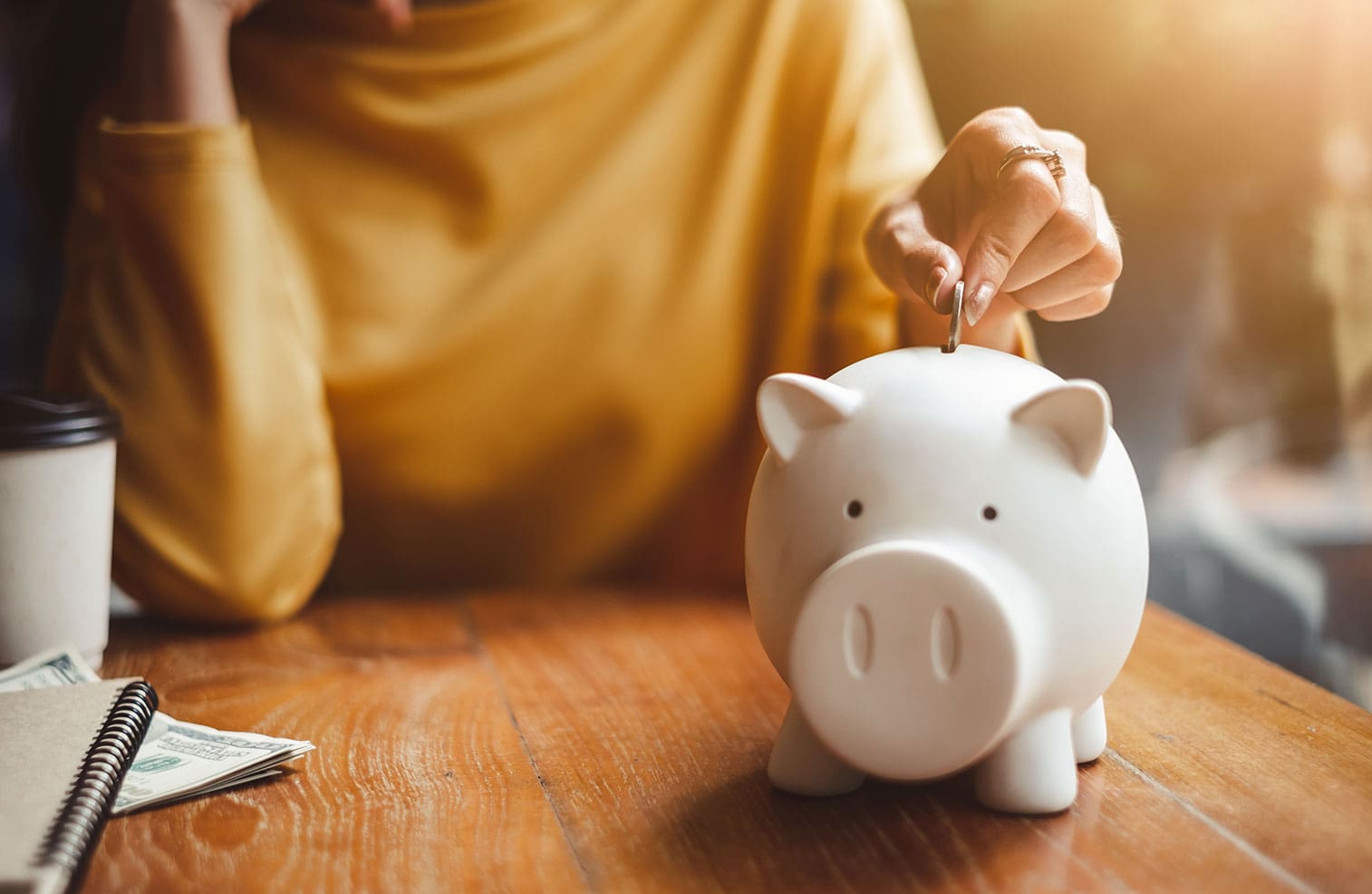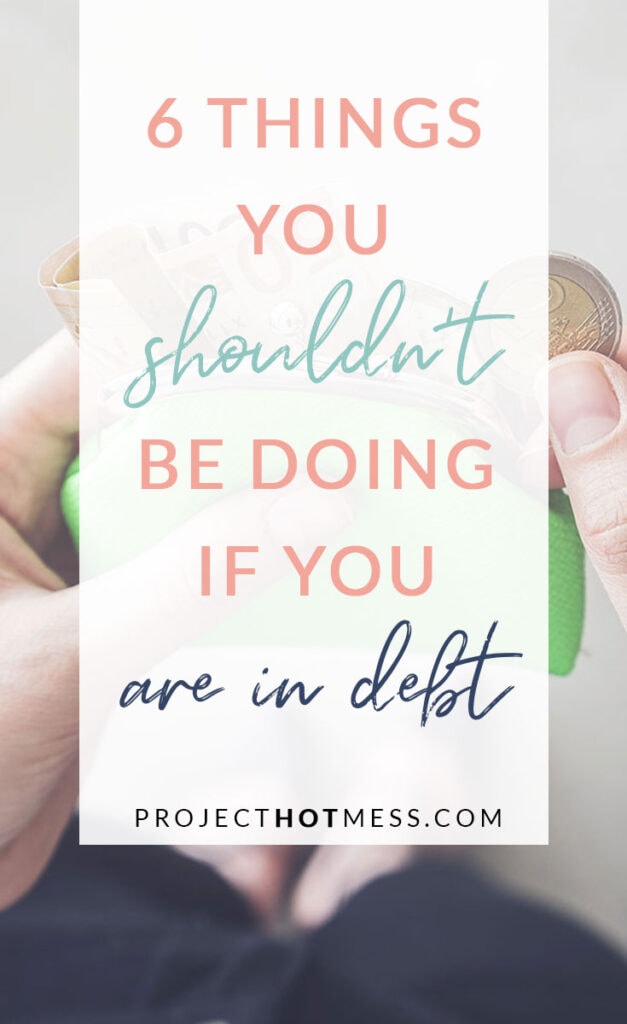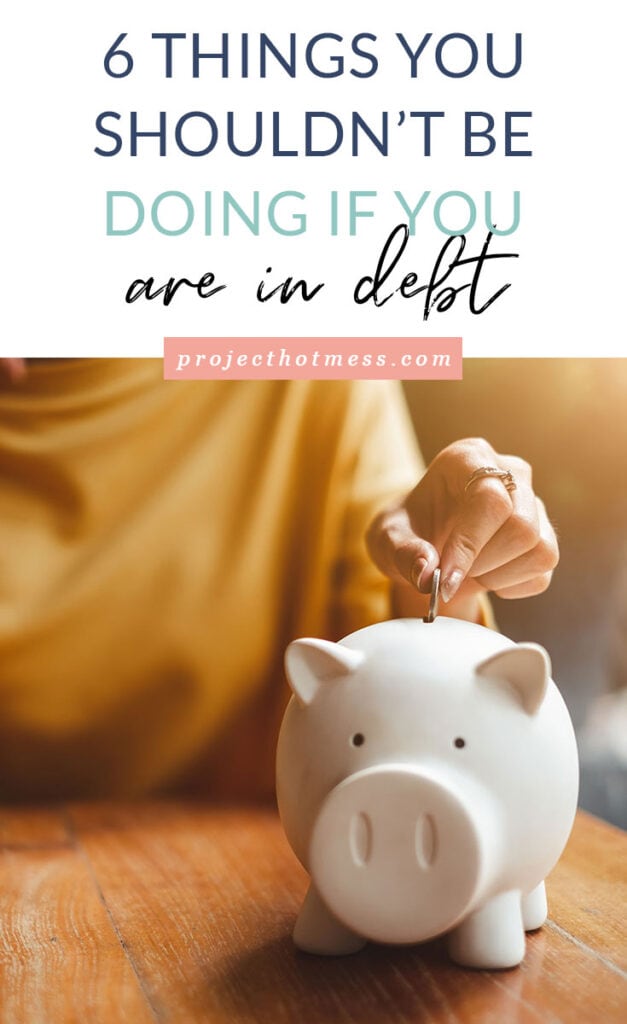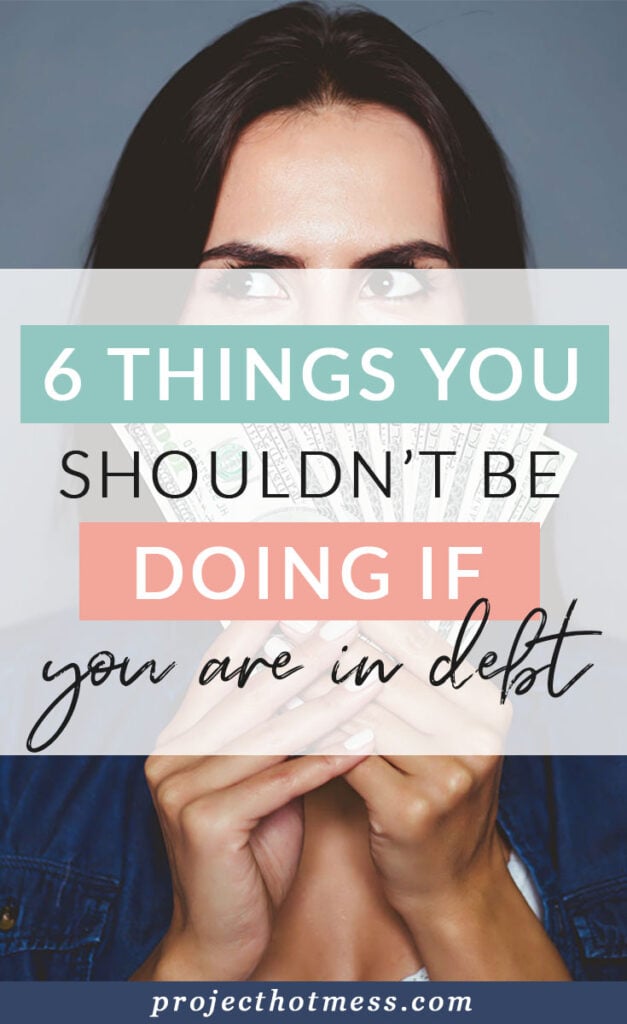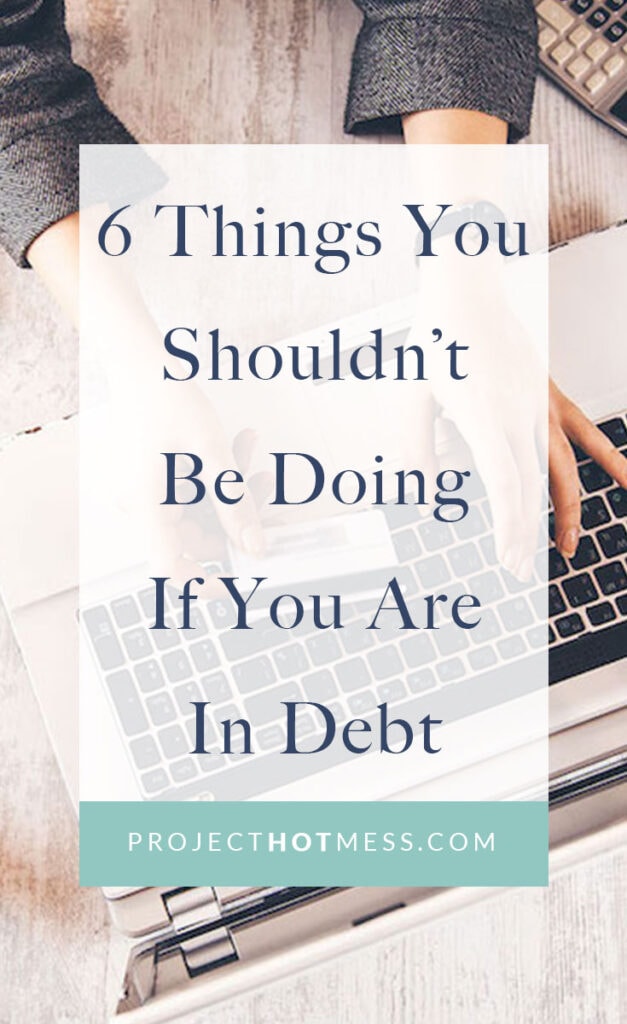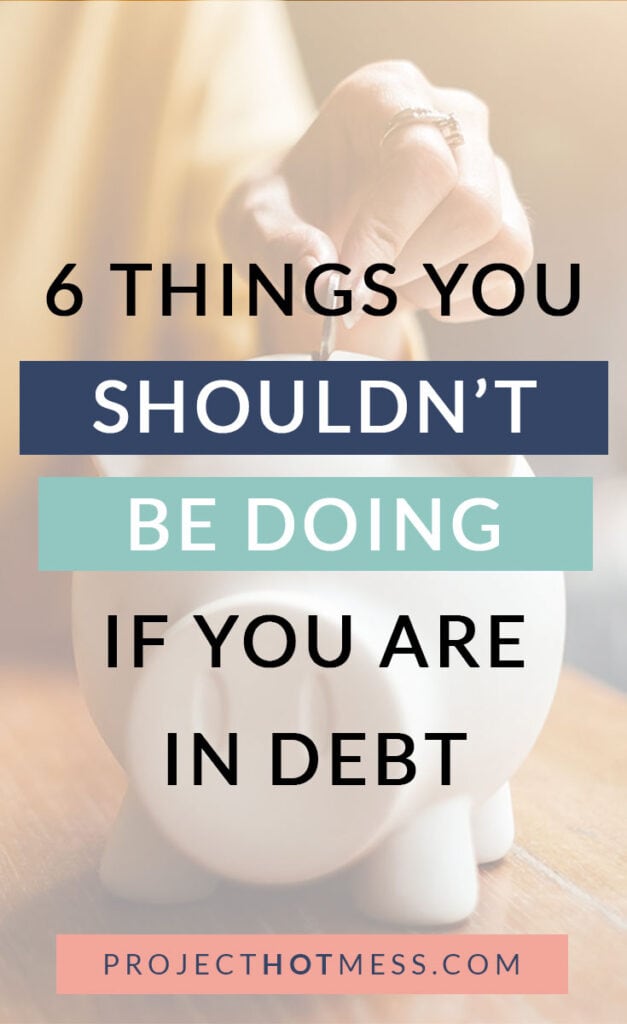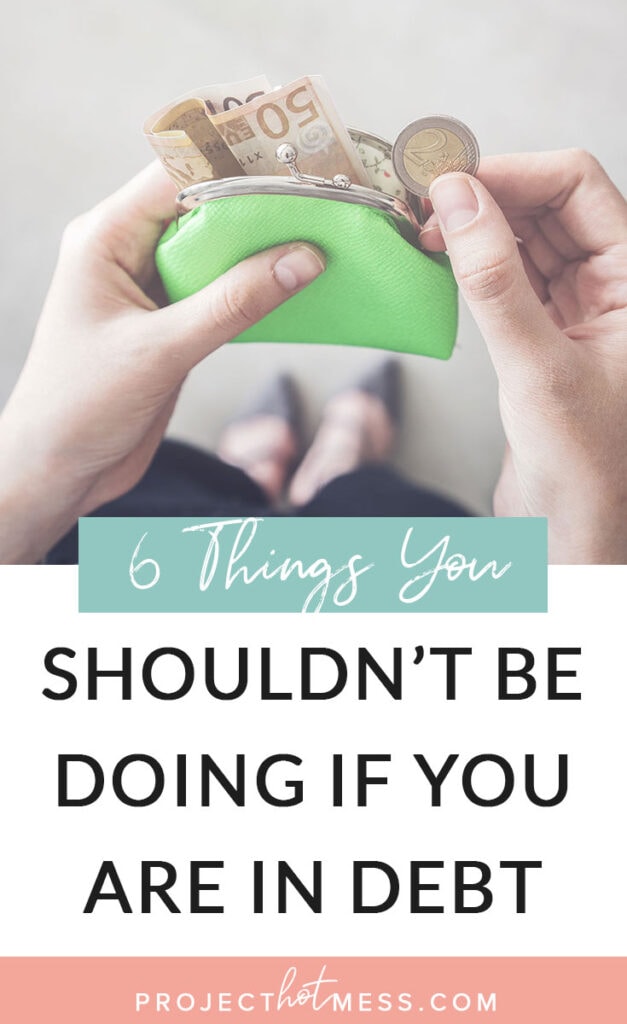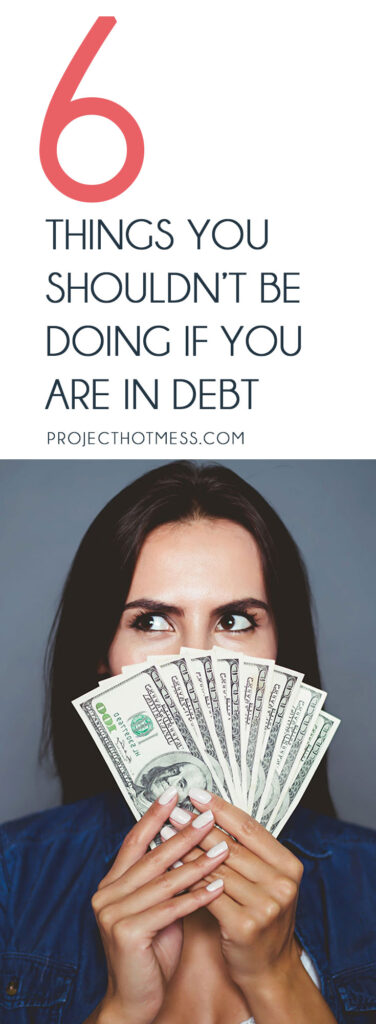6 Things You Shouldn’t Be Doing If You Are In Debt
When you’re in debt, it can be difficult to see through it.
Sure, we all have a goal of paying off our debt, but without a plan in place, it seems like it’s almost impossible to do.
And when you realise that debt is designed to keep you in debt, it can be quite eye opening as to how easy it is to stay within this debt spiral.
So, we know that when we want to pay off our debts we need an action plan, but what about the things we should be avoiding when we are in debt?
What about the things that we can control and we avoid to ensure we don’t stay in the debt cycle?
These are some of the things you shouldn’t be doing if you are in debt, particularly if you’re working towards paying your debts off and achieving your financial goals.

1 – Getting Into More Debt
I know it seems like an obvious point, but you’d be surprised at how sneaky some finance companies can be at convincing you to get another loan or to move your debt to them.
Rather than getting a larger loan to pay out smaller debts, work on paying your smallest debt down first and eliminating it, therefore reducing the total number of debts you have.
This is not the usual way I would recommend paying off your debts (I prefer to pay off the ones with the highest interest first) however getting rid of a few smaller debts can help your mindset a lot and a win like eliminating a debt can help boost your motivation when it comes to sticking with your debt pay down plan.
Stay strong, throw out offers for new credit cards immediately, keep your goals at the forefront of your mind and focus on them every single day. You can do this!

2 – Making Purchases On Your Credit Card
Again, this one seems super obvious but can easily be overlooked.
Stop making purchases on your credit card immediately.
It doesn’t matter if you get great points or rewards, they aren’t nearly worth the hassle of continuing your debt cycle.
With 50% of Americans having maxed out credit cards, it’s easy to see how people say within this debt spiral.
They make a payment off their credit card, and then as soon as the funds are available, they spend that money on their credit card, maxing it out again, only to repeat the cycle month after month.
This is not going to get you anywhere.
The only way to break this cycle is to stop making purchases on your credit cards.
If you can’t afford to purchase something without using your credit card, then you can’t afford to purchase it.
In order to pay off debt you need to live below your means.
The very reason you’re in debt is because you’ve lived above your means and used borrowed money, whether it’s for a house, for a car, or for everyday purchases, it’s still borrowed money.
In order to get out of debt, you have to stop borrowing money.
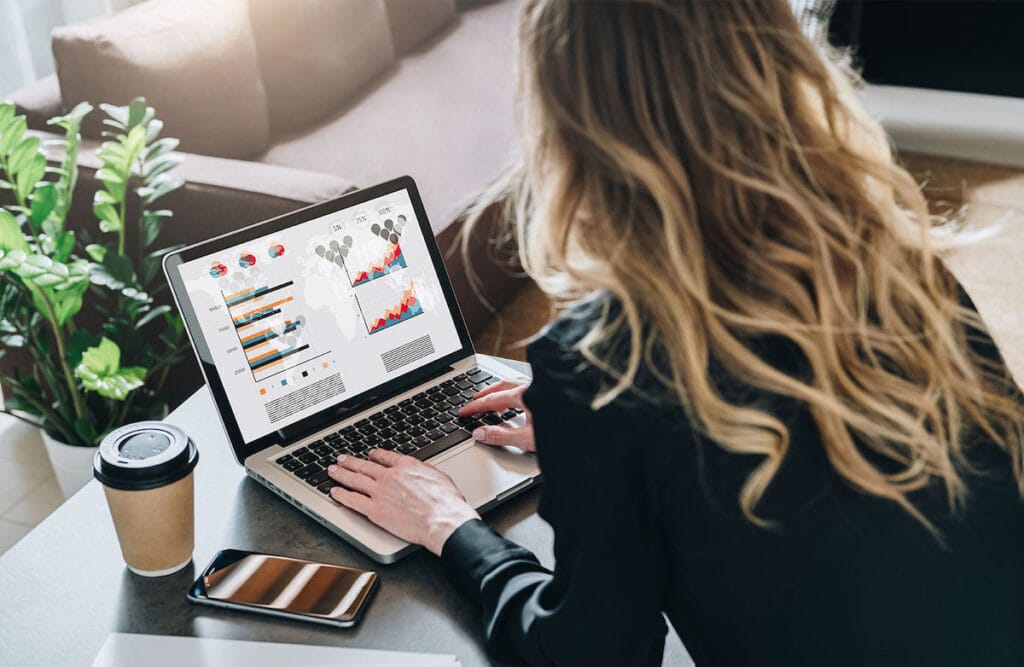
3 – Ignoring Your Finances
The number 1 way to guarantee you’ll never get out of debt is to ignore your finances.
Whether talking about money makes you feel uncomfortable, or whether you don’t understand your finances so you’ve just not worried about them, or even if you were taught that money isn’t something people should talk about, now is not a time to stick your head in the sand and hope for the best.
You should be running your personal finances like a business. You should know exactly what is coming in, exactly what is going out, and aiming to operate at a profit.
The first step is taking stock of your financial situation. Sit down and work out all of your income, all of your expenses, and all of your debts.
Be honest – the only way this will work is if you are brutally honest. Once you have all the data, you can start formulating a plan (see next point).
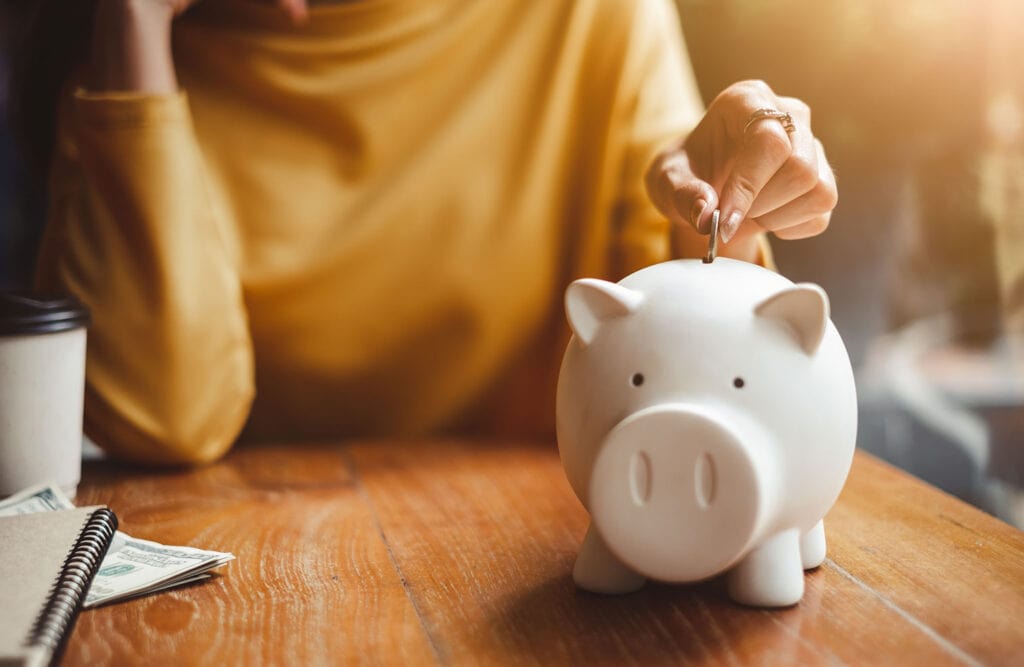
4 – Living Without A Budget
Living without a budget is kind of like winging it and hoping for the best. It wasn’t until a few years ago that I truly understood this.
I always believed budgets were for people who couldn’t manage their money well (little did I realise that was actually me) or for people on a low income.
However, having a budget isn’t a bad thing – it’s a smart thing.
You are in control of your money. You control it. 100%. It’s yours.
If you have an empty bank account two days after payday, that is on you. Having a budget means that none of this is ever a surprise.
We budget for everything – literally everything.
We even budget a portion for ‘unexpected expenses’, just in case. I am never surprised when a bill comes in, and in fact, thanks to automating my finances (see more on that in the next point) most bills are actually paid before they arrive.
Having a budget doesn’t mean you can’t have spending money, or that you have to save every last cent. It shows you what you can actually afford to spend.
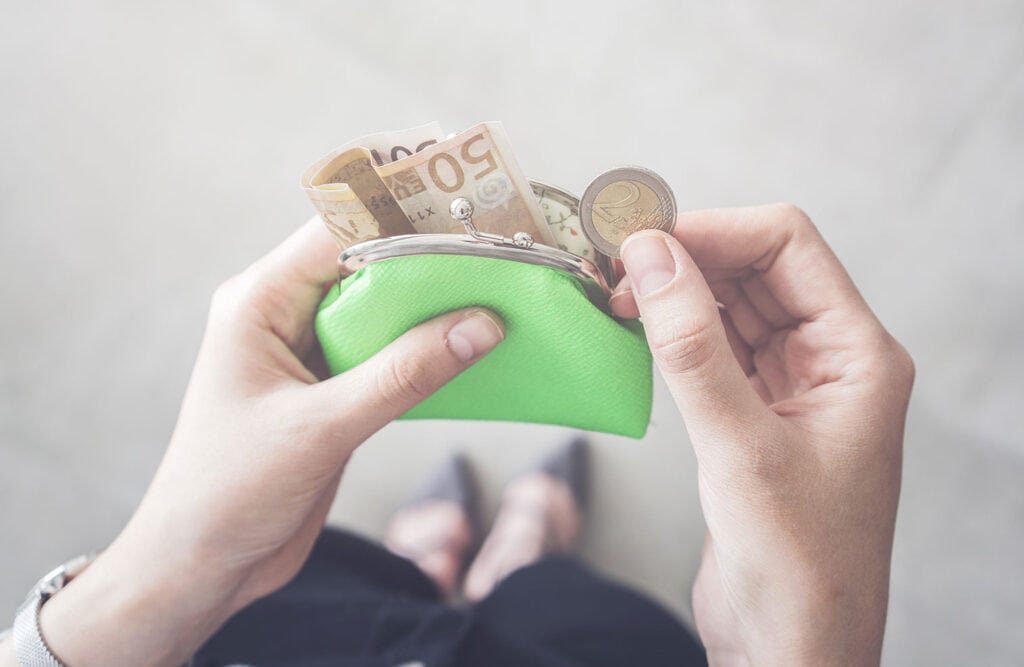
5 – Making Late Payments
With late payments come late fees, and late fees are you simply adding to your debt with no benefit whatsoever.
Late fees can be astronomical, and if you’re consistently late, it can also hurt your credit rating (which can cost you more in the long run too).
To avoid late payment fees, work out what your payment amounts are for all of your expenses, and work out how much you need to put towards it each pay cycle in order to make the payment.
For example, if you’re paying $1600 a month for your mortgage, and you get paid weekly, put $400 a week towards your mortgage so your monthly payment is covered.
You can do this for almost all bills you have, and for those that don’t allow you to make partial payments, or pay in advance, you can have a separate ‘bills’ bank account that you put this money into.

6 – Paying The Minimum Amount
Minimum repayments, especially off credit cards, mean your debt is going to take so much longer than you think to pay off.
Use a credit card repayment calculator to find out how long it would take you to pay off your credit card debt if you only paid the minimum repayment.
To give you an idea, if you have a $5000 credit card, with 18% interest rate, it will take you over 33 years to pay off that credit card (that’s if you don’t actually spend any more money on it too).
Your minimum repayment is exactly that – the minimum!
Choose which debt you’re going to pay off first and put all of your ‘extra’ money into paying that off. Once that is done, take the money you were paying off that debt and move it to the next one.
Do this over and over again until you have no more debt, and then move that money to your savings.
Paying off your debt can seem like a gigantic task sometimes, but when you break it down, keep your steps simple, and work towards one goal at a time, you’ll see that it’s absolutely possible.
Just be sure to avoid these main things you shouldn’t do while you’re in debt so you can be sure to achieve your financial goal of being debt-free!


